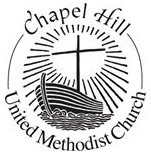We read and sing and talk a lot within the Church universal about God’s glory. But what is glory? It seems a rather amorphous term as we read of God being “worthy of glory and honor” or of how “God’s glory shone around.”
It helps to put this term in the context in which it is encountered in cultural contexts. Much of ancient, especially in the Roman empire of the First Century was built on a patronage. The powerful people in a nation or community made the people who were less powerful than them dependent on them. They, after all, controlled the resources and social systems. For this reason, they became patrons to those below them. They cared for those lower than them, in an imperial sense. In return, they demanded respect. This was their glory.
Glory could be earned as well as demanded. At least for a time, the Caesars had earned glory from many. They were viewed of great and powerful leaders worthy of glory and honor due to exploits in battle and as emperor. They received glory and honor from the people, though this still came, from many, out of fear and coercion.
With this context in mind, we could say both Adolf Hitler and Nelson Mandela were glorified by their people, though for extremely contrasting reasons. Hitler gained glory by convincing his people that Jews were evil and everyone else was against them and by exercising great power over their enemies. Mandela gained glory by overcoming the racist injustice of his enemies, first by participating in violence before heeding the call to nonviolence.
We have contrasting images when we consider why God is glorious and why we should glorify God. Is it because God is a fearful tyrant that will strike us down when we step out of line? Our Wesleyan theology suggest this is not the case. Instead, we embrace the God who is love and who never stops seeking to bring us back into God’s love when we turn away and fail. God is with us when we suffer harm or misfortune walking with us until we receive deliverance. God gives not fear but grace, for perfect love casts out all fear. This is our God of glory.
As we continue through this Lenten season give some thought and prayer to the question: “How has God earned glory in my life, in my community, in my world? How can I give that glory back to a loving God with my love for God and neighbor today?
Grace and peace,
Rev. J.D. Allen

